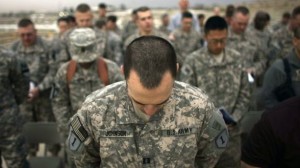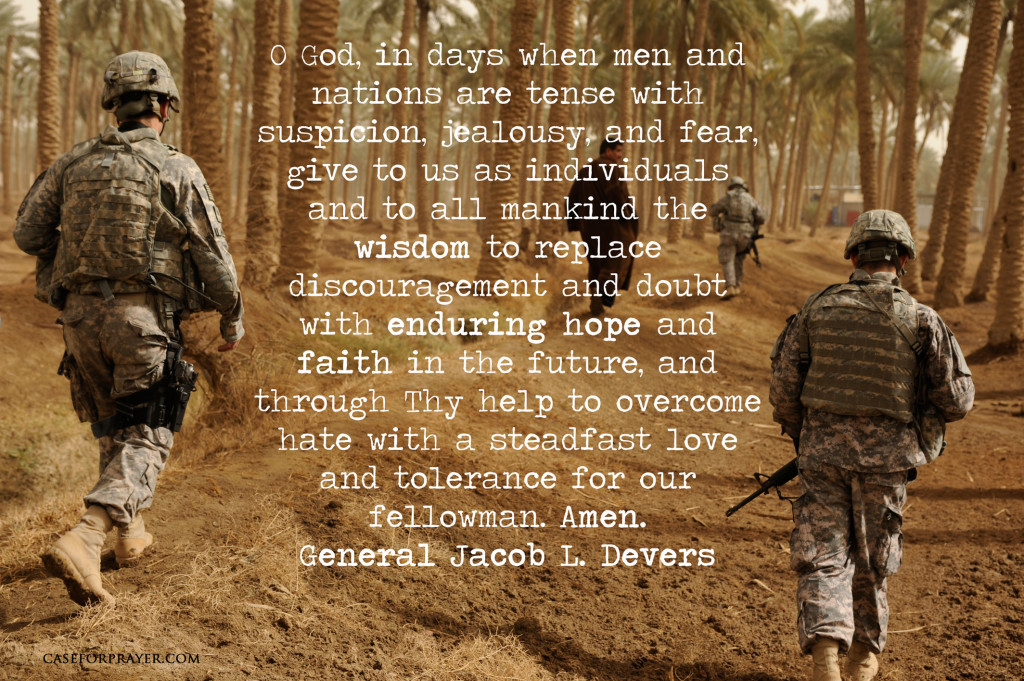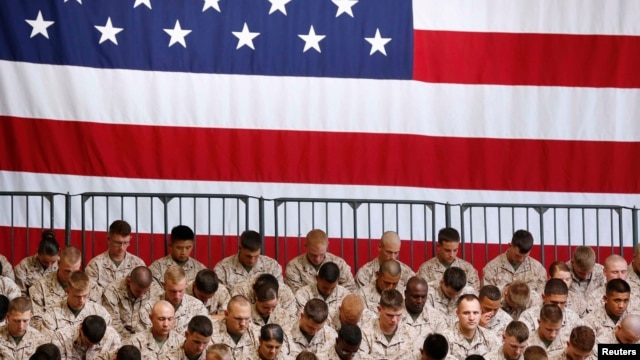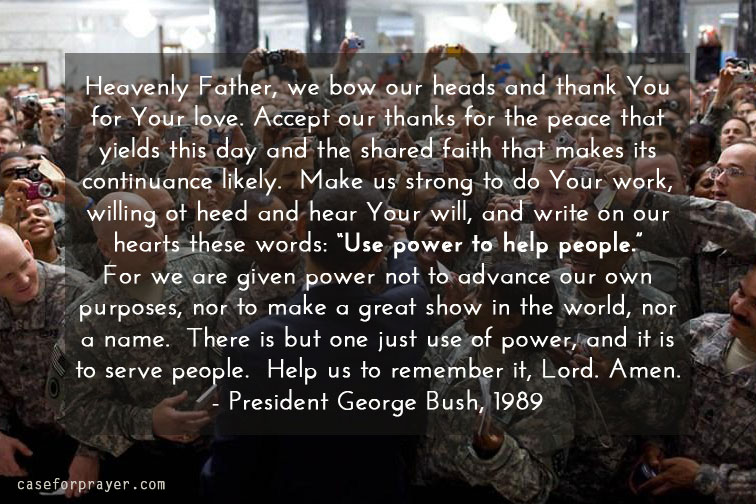
They say that war and deployments change you, and that you’re never the same afterwards.
As a Navy captain who has been deployed to war in the Middle East several times, I can vouch that this is true. But it doesn’t mean that all the change is bad: you just see things differently when you return home. For me, one of the greatest changes is the way I look at prayer.
Each time I was deployed, the experience was much the same. Epic sandstorms and incredible heat, with temperatures of 130° F or more and humidity that could reach over 90 percent. Drinking one water bottle after another, with endless trips to the portable toilets. Cramped living conditions, zero privacy, and lines for everything. Deployment to a war zone also means combat conditions, danger, fear, self-doubt, and prolonged separation from family and friends.
In these circumstances, with so many things out of your hands, you see how little control you have over your life and the lives of those entrusted to your care. But very intensely, you realize that God is always in control and that he hears you when you pray. This sense of God’s closeness became a living reality for me, as I brought him my concerns for my family and the troops under my command.
Mass Meant Everything. Weekly Mass was the highlight of my prayer life during deployment. For Catholic troops, it’s not just an obligation—it’s a sanctuary and a place of peace.
Mass was a simple affair. The chaplain would arrive with a small box containing missals, a chalice, wine, hosts, and everything else he needed. There might be five people, or fifty; the first two to arrive did the readings, and we all sang what we could manage. The priest would put on his vestments, and we’d start—sometimes right out in the open desert with a utility table for an altar. The biggest Marines you’ve ever seen would come from out of nowhere to stand, humble and needy, in that small circle. Even if you could hear the sounds of battle and worried about being shot at, you wanted to be there for those twenty minutes of peace.
After Mass, if the chaplain had time, he heard confessions. We would line up and confess our sins face-to-face when our turn came up, with those behind standing a respectful distance back. Then the chaplain would be off to the next base. I always prayed for these priests. They were often overworked, due to the shortage of Catholic chaplains, but they never complained.
We appreciated their sacrifice, because weekly Mass meant everything. In those few minutes, Christ restored us and made us strong enough to handle the next week. We would close our eyes and remember our loved ones back home, knowing that they were hearing the same Scripture readings that day. Through the Mass and our faith in Christ, we were connected.
Prayer and Post-its. Early every morning before my day got going fast, I would read my daily Scripture. The Word Among Us was a great help—I discovered it while deployed, among the donated materials that the chaplains set out. Then I would pray for my family and for the men and women who were serving with me. I’d pray for those who had died that week and for their families. When our missions were especially dangerous—convoys through areas where there were snipers and IEDs, for example—I prayed for that too.
During the day, I looked for opportunities to keep turning to the Lord. Even with little time and no privacy, I could usually find a minute to pull out my Bible, read a passage, and intercede. And just to help me remember everyone and everything I was praying for, I kept a prayer list of Post-it notes in my Bible. In the fog of war, you can’t always remember names and needs without some help. Those sticky notes were invaluable!
Deployed service men and women have all the same concerns and problems that they had at home. And deployment can make them worse. We worry about our spouses, with all the extra work and burden they are carrying alone. We wonder if our children are doing well in school. I remember hearing a sailor on the phone with his wife one night, talking her through the bills: “Honey, take four envelopes, and write out ‘mortgage,’ ‘groceries,’ ‘gas’ … .” He did his best to sound positive, but his chin quivered as he spoke, and I knew his military pay wasn’t enough. His name went on my prayer list too.
Letters and e-mails from home let me know that other people had me on their prayer list. My parents had a prayer circle of other elderly parishioners who prayed for my service members and me. This was huge! Some of these people I had never even met. Knowing that they were remembering us and lifting us up to the Lord gave me a sense of security and hope that we would make it through.
Changed Forever. In “the world,” as deployed troops refer to home, it’s easy to think you’re in control. You go where you want; eat what you want, when you want; watch what you want, with remote controls in hand. When you’re deployed, you don’t have choices like that because you’re not in control.
And so I prayed. It was all I could do—and the best thing I could ever do. I learned that the Lord was very near. Sometimes a sailor would come and tell me about bad things happening with his family, and I’d see this big, powerful guy break down in tears. I’d address the problem by contacting our command back home. But it was prayer that brought peace to that service member in front of me. As we prayed, I often felt like the words I was speaking were coming from somewhere else.
So yes, my deployments have changed me. There’s not a single Sunday that I don’t relive a Mass in Iraq or somewhere else in the Middle East. When I lector, there’s not a single time that I don’t think back to reading Scripture at Mass in a war zone, where church means “us”—the people and not a building, just like in the early Church. As I read the Old Testament, I see a place I’ve seen before, not an image from a movie. I feel the sand and hot wind on my face, and for a moment, I’m back there.
Best of all, I now know without a doubt that God is with me and that he hears me whenever—and wherever—I pray.
Navy captain Mark Ghirardi lives in northern Florida with his wife and two children.








